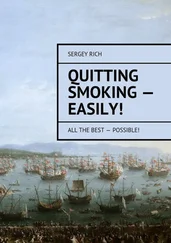“Never mind,” said Laura, “if you like, go ahead and say that God gave me a plain face and made me full of self-pity. What am I going to do about it? Do you think I ought to take pleasure in it? I want a husband like all the other girls. I don’t want to be left alone.”
“In my late adolescence,” said Edmund, “life seemed to me to be Shakespearean. But now as I get older I see that life really resembles the stories of Dostoyevsky.”
“Enough of these literary allusions,” said Laura. “You’re no Karamazov.”
This new version of Laura’s famous sentence, “You’re no Adonis,” drew forth reminiscent laughter lacking in vigor because Laura stood before them, cold-faced.
“Marriage is not so important,” said Irene, who had been silent and who, as a newcomer, had not really understood what Laura was saying.
“What do you have that I don’t have?” said Laura to Irene, quoting herself again.
Jacob arose and it was natural that all should accept this moment as belonging to him.
“The fact is,” said Jacob, in a low and careful voice, “we all have each other and we all need each other. Laura’s story was a very good story, whether it was written by Rilke or Kafka. All of us consume each other, and life without such friends as we are to each other would be unbearable. The best pleasure of all is to give pleasure to another being. Strange as it seems, I see this truth every day when I give my cat his dinner, and I see how unbearable solitude is when I come home and he is pleased to see me, and I am pleased that he is pleased.”
“I am not a cat,” said Laura, unwilling to be consoled by mere analogy, “I am a girl.”
“Each of us,” said Jacob, “has been disappointed and most of us will continue to be disappointed. It would be foolish to try to say that the disappointment is not painful or that it is good for us or that it is necessary. Yet, on the other hand, which of us would really like to be dead? Not one of us would prefer that his life had ended in childhood or infancy, and that he had not lived through the years he has lived. Since this is true of the past, it is likely that it will be true of the future, and in the same way. By the same way, I mean that we will not get what we want; our desires will not be richly satisfied; but nonetheless we will be pleased to live through the years, to be conscious each day and to sleep every night.”
“Not me,” said Laura, “speak for yourself.” She took another glass of champagne.
“You do not know what you are saying, Laura,” said Edmund. Taking a book in his hand, he too read aloud:
“‘When one is upset by anger, then the heart is not in its right place; when one is disturbed by fear, then the heart is not in its right place; when one is blinded by love, then the heart is not in its right place; when one is involved in anxiety, then the heart is not in its right place. When the mind is not present, we look, but do not see, listen but do not hear, and eat but do not know the flavor of the food.’”
“I am wearing my heart on my sleeve,” said Laura, unmoved, “all the sentences in all the books will not do away with my disappointment.”
“How about your love?” asked Marcus.
“I don’t have any love,” said Laura.
“How much money do I make? ” said Edmund.
“We can’t just run on like this,” said Jacob, “and yet nothing seems to do any good.”
Laura had begun to cry and those who saw her tears tried to make believe that they did not see them.
“I just don’t like it,” she said, sobbing, “I am going to get out of this house.” She started for the door. Edmund and Ferdinand took hold of her and dissuaded her.
“Have some more to drink,” said Marcus in an effort to be helpful.
“I am going to try again,” said Jacob, “since there is nothing else to do but try again.” He said this as to himself and then he spoke loudly and clearly:
“ The world is a wedding. I read this sentence in an old book last week. I had to think for two days before I had any conception of what this sentence The world is a wedding was supposed to mean. Does it mean anything? Yes, and it means everything. For example, it means that the world is the wedding of God and Nature. This is the first of all the marriages.
“It was natural that I should think of Pieter Breughel’s picture, ‘The Peasant Wedding.’ Do you remember what that picture looks like? If you look at it long enough, you will see all the parts that anyone and everyone can have. But it is necessary to belong to a circle of friendship, such as ours, if one is to be present at the wedding which is this world.”
“The world is a marriage of convenience,” said Laura drunkenly, “the world is a shot-gun marriage. The world is a sordid match for money. The world is a misalliance. Every birthday is a funeral and every funeral is a great relief.”
“I only went to a wedding once,” said Francis. He spoke in a low voice but with an intensity which made everyone listen. “It was the wedding of my older sister at the age of thirty-six.
“The bridegroom’s mother, who was eighty-five, was brought in a taxi to the ceremony. She paid no attention to the ceremony, but kept telling my mother how, at the home for the aged where she lived, she was persecuted and other old men and women pampered; but my younger sister and I listened to what she said because it was more interesting than the ceremony itself. One thing we kept noticing was that the bride was at least a head taller than the bridegroom.
“Then the old lady was sent back to the home for the aged in a taxi, after getting my mother to promise to see her. After her departure, the wedding party went to the big downtown hotel where the bride and bridegroom had taken a room for the night. My younger sister and I kept getting more and more disappointed because we had never been to a wedding before, and we thought that all weddings must be like this. Up in the hotel room where we had been sent to wash, we looked at the twin beds and giggled. Then we stopped giggling because the room looked as depressing as everything else. We had dinner in the big dining room downstairs, the bridegroom, the bride, my mother, my younger sister and myself. No one had very much to say to anyone else. It was just as if we were having dinner on a rainy Sunday. After dinner ended, we said goodbye to the bridegroom and the bride, and we went home in the subway. I had homework to do and my sister had to practice her piano lessons. We asked my mother if in honor of the occasion we might not postpone the homework and the lessons, and she said the wedding was all over.”
Francis paused. He had become almost breathless as he continued his story.
“I want to ask all of you this question,” he said. “Do I agree with Jacob that the world is a wedding, or don’t I? What do all of you think?”
“You’re right,” said Laura, “and he is wrong.”
“In the beautiful picture by Pieter Breughel,” said Jacob, disregarding what Francis and Laura had just said, “you can see a squatting child on the floor, sucking his thumb which is sticky with something sweet. Standing by the table are two musicians, bearing bagpipes. One is young, handsome and strong; he is dressed in brown and his cheeks are puffed out. The other musician is unkempt and middle-aged. He looks far away as if he were thinking of his faded hopes. The serving men are carrying a long tray full of pies. The bride is seated beneath the red-white mistletoe and on her face is a faint smile, as if she thought of what did not yet exist. The bridegroom is leaning back and draining down the ale from a fat stein. He drinks as if he were in the midst of a long kiss. Nearby is a dwarf and at the head of the table a priest and a nun are conversing with each other. Neither of them will ever have a husband or a wife. On the right hand of the bride, an old man looks ahead at nothing, holding his hands as if he prayed. He has been a guest at many wedding feasts! He will never be a young man again! Never again will youth run wild in him!
Читать дальше












